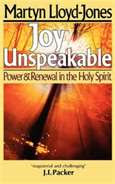No Compromise
Chapter 15
A limitation to intercession
1. Then the LORD said to me, "Even if Moses and Samuel stood before Me, My mind would not be favorable toward this people. Cast them out of My sight, and let them go forth.
2. And it shall be, if they say to you, 'Where should we go?' then you shall tell them, 'Thus says the LORD: "Such as are for death, to death; And such as are for the sword, to the sword; And such as are for the famine, to the famine; And such as are for the captivity, to the captivity." '
3. "And I will appoint over them four forms of destruction," says the LORD: "the sword to slay, the dogs to drag, the birds of the heavens and the beasts of the earth to devour and destroy.
4. I will hand them over to trouble, to all kingdoms of the earth, because of Manasseh the son of Hezekiah, king of Judah, for what he did in Jerusalem.
5. "For who will have pity on you, O Jerusalem? Or who will bemoan you? Or who will turn aside to ask how you are doing?
In chapter 14, we noted three ways, in which the Lord responds to prayer. The first and most important is a response, which brings positive results. The second response is one that we see applied from time to time in the Bible. When people insist on having their own way, God will eventually give them that, which they have demanded, but it is to their own misfortune. The third response was the one that Jeremiah experienced in the last chapter… a refusal to even hear his prayer. This chapter begins by emphasizing that refusal.
Jeremiah must be somewhat relieved to know that he is not the only one, whose prayer is rejected. He has company among some of the most reputable and powerful intercessors (1). The first is Moses. We often recognize, and rightly so, his wonderful intercession for Israel, when God threatened to eliminate the race. Even so, I think sometimes we underestimate the scope of Moses prayer ministry. His intercessory prayers were set in motion in Egypt, long before that period in the wilderness. Beginning in Exodus 8:8, whenever Pharaoh asked for relief, Moses cried to the Lord and He answered. There is a recurrence in 8:28-30, 9:27-33, and in 10:16-18.
Samuel was a continuous intercessor for the people of Israel. After the people wanted to follow the nations around them by asking for a king to reign over them, the Lord consented, but manifested His anger. The people recognized their sin and begged Samuel to pray for them. Samuel answered, “Far be it from me that I should sin against the Lord in ceasing to pray for you” (1 S.12:23).
Thursday, March 31, 2022 | 0 Comments
Can the Heavens give Showers?
Chapter 14
The Lord describes a terrible drought
1. The word of the LORD that came to Jeremiah concerning the droughts.
2. "Judah mourns, And her gates languish; They mourn for the land, And the cry of Jerusalem has gone up.
3. Their nobles have sent their lads for water; They went to the cisterns and found no water. They returned with their vessels empty; They were ashamed and confounded And covered their heads.
4. Because the ground is parched, For there was no rain in the land, The plowmen were ashamed; They covered their heads.
5. Yes, the deer also gave birth in the field, But left because there was no grass.
6. And the wild donkeys stood in the desolate heights; They sniffed at the wind
like jackals; Their eyes failed because there was no grass."
There is much that we can learn about prayer, the most important is to know that God is a prayer-answering God, Who glorifies His name by responding to the prayers of His people. One of two ladies, Sarah A Cooke (one of two who spoke to D. L. Moody about the Baptism in the Spirit), was at a Chicago train depot, witnessing to the travelers. She came across a couple on their way to Oberlin, Ohio. Learning that the crippled husband had been a member of Charles Finney´s church in Oberlin, she asked if he could recall, personally, any incidents from the ministry of Finney.
The man began: “We had been long without rain. All vegetation was drying up; everything looked parched. In the prayer preceding the sermon, on Sabbath, Mr. Finney began to pour out his full heart to God for rain: ‘Lord, the cattle in the fields are lowing for water; there will be no food for them for winter, unless thou sendest rain. The harvest will fail - no food for man - unless Thou sendest rain. The little squirrels in the woods are panting for rain.’ The service proceeded, the text was chosen, and for about half an hour Mr. Finney preached, when the rain began to dash against the windows,” That story was published in a book in 1893. God specializes in answering prayer.
Tuesday, March 22, 2022 | 0 Comments










